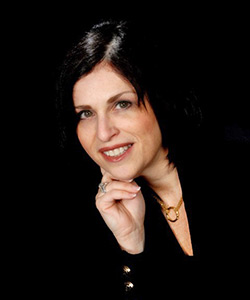By Nadine Vogel
President, Springboard Consulting LLC
That’s so gay. That’s retarded. Are the children yours? Can you have children? But she doesn’t look like a lesbian. I have that handicapped woman on my team.
Alarming? Yes, but these are just some of the remarks heard around the water cooler. These words are hurtful and can be seen as a form of bullying and harassment.
About 15 percent of the workforce is either someone with a disability or someone who has a child or other dependent with special needs. Another 10 percent is someone who is LGBT. Many companies have policies in support of these individuals, due to legal requirements, while others have policies surrounding a company’s commitment to fairness and/or the ability to recruit and retain qualified employees.
And while the policies are important, it takes a lot more than policies to make a workplace LGBT or disability friendly. It takes the practices of social justice, of supportive co-workers who show genuine respect and possess sensitivity to the concerns of these communities.
“Making it comfortable for everyone to be who they are and bring their full selves and creativity to the workplace is critical to everyone’s success.”
For someone who is LGBT, the process of coming out can be misinterpreted, which often leads to invisibility and social isolation. For someone who has not come out, what seems like a simple question, such as “are you married?” can become complicated. On the other hand, for people with disabilities, our society’s most socially isolated group, coming out is often unavoidable either because the disability is visible or the person needs to come out in order to receive the supports they require to be successful in the workplace.
So often these inappropriate comments arise as the result of misunderstanding or a lack of information. So what’s an employer to do? Train; specifically on etiquette and awareness, using reallife examples that will help guide understanding, inclusion and acceptance of everyone. Also ensure that internal communications, company-wide celebratory events, resource groups and mentor programs are inclusive of the LGBT and disability communities.
In conclusion, keep in mind that people who are LGBT and/ or disabled, are individuals with families, jobs, hobbies, likes and dislikes, problems and joys. While their sexual orientation and/or disability may be an integral part of who they are, it alone does not define them. Making it comfortable for everyone to be who they are and bring their full selves and creativity to the workplace is critical to everyone’s success.
You can learn more about this most important topic and how best to support it in the workforce and workplace by contacting Springboard Consulting.
This article has been sponsored by:
Springboard Consulting LLC

Nadine Vogel
Nadine Vogel is the CEO of Springboard Consulting LLC. Founded in 2005, Springboard is recognized as the expert in mainstreaming disability in the global workforce, workplace, and marketplace. Serving corporations and organizations throughout the U.S., Canada, Europe, and Asia, Springboard has become a trusted partner in relation to disability issues and initiatives across virtually every business category. For more information, please contact Nadine Vogel at Springboard Consulting. Nadine is also the author of Dive In: Springboard into the Profitability, Productivity, and Potential of the Special Needs Workforce.






